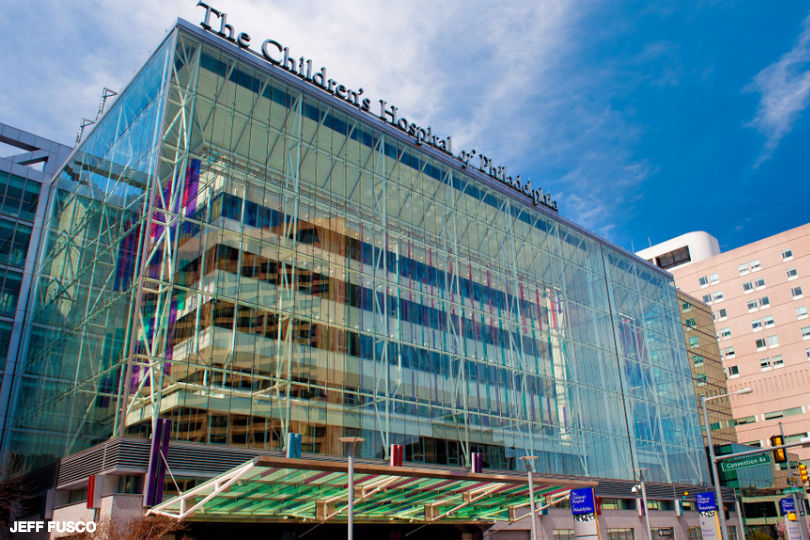CHOP Has Launched a Grief and Trauma Support Program for Philly Kids
The new collaboration between CHOP, the Netter Center, and Uplift seeks to help children in West and Southwest Philly and their families cope with trauma from community violence and the pandemic.

CHOP’s new collaboration with the Netter Center and Uplift will provide trauma support to Philly kids. Photograph by Jeff Fusco
From the pandemic to the gun violence epidemic to systemic racism to the opioid epidemic, life in Philly is rife with traumatic events. And that trauma is a lot for anyone to cope with, especially a member of Philly’s most vulnerable communities, who bore the brunt of the pandemic, and even more so for a child of those communities. For those reasons, CHOP recently launched a collaboration with the University of Pennsylvania’s Netter Center for Community Partnerships and the Uplift Center for Grieving Children to provide programming to support Philly kids experiencing grief and trauma. The new initiative will focus on providing resources for kids in West and Southwest Philly.
“Children in West and Southwest Philadelphia experience traumatic events far too frequently” said Alonzo South, senior director of community engagement at CHOP. “We know chronic exposure to violence and other trauma can lead to learning challenges and physical and behavioral health issues. As a result, it is critical that we help these children build resilience and buffer them against the traumatic exposure to community violence, as well as grief and loss from the pandemic.”
The new initiative will include virtual peer support groups for kids and programming during and after school hours through two of the Netter Center’s University-Assisted Community Schools (UACS), as well as monthly family empowerment workshops that will focus on understanding grief, building resilience, and social-emotional health. Both the support groups and workshops are led by Uplift’s masters-level grief clinicians and are designed for children “grieving significant deaths or navigating other ambiguous losses, such as isolation from school and community during the pandemic or incarceration of a loved one,” according to CHOP. The collaboration will also provide trainings for the adults working directly with the kids — their parents, guardians, and teachers — to equip them to support the kids as they process their grief and trauma.
The collaboration is part of CHOP’s Healthier Together Initiative, which addresses four social determinants of health — housing, trauma, hunger, and poverty — to improve the health and lives of patients and families. It also complements the existing program between CHOP and Uplift called Growing Resilience in Teens (GRIT), which was established in February 2020 thanks to a grant from TD Bank.
South says the original idea for the new partnership was to focus on providing in-person group therapy to CHOP primary care patients. When the pandemic hit, however, they were forced to pivot. “We started to ask, ‘How do we reach our patients?’ since families were staying home early last year,” he says. “So, we decided to virtually expand to schools in order to reach more children in Philly’s underserved areas, and leveraged the relationship we already had with Uplift to bring on the Netter Center, who was already doing amazing work in local schools.” He adds that the partners took into account the digital divide that exists in Southwest and West Philadelphia, as well as user acceptance, so as to create a “COVID-compliant program that would work in a digital platform and actually be used by community members.”
South says the real value of the initiative is that it makes community-based behavioral health and child-related services more accessible. “Offering these services solely in primary care settings isn’t enough, and neither is just treating the child,” he says. “You have to go into communities themselves, and support guardians, families, and teachers, too. Plus, all of our services are free and don’t require insurance because there shouldn’t be barriers to children living productive, healthy lives.”


